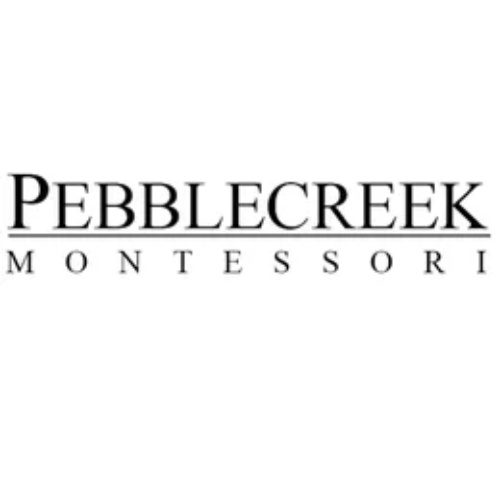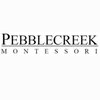As a parent, you want the best for your child's education. And when it comes to choosing a school, there are plenty of options to consider. But have you heard about Montessori schools? These unique institutions offer an alternative approach that focuses on individualized learning and hands-on discovery. In this blog post, we'll explore what Montessori schools are all about and why they could be the perfect fit for your child's educational journey. So buckle up and get ready to learn why Montessori School might just be what your child needs!
What is Montessori School?
Montessori schools are educational institutions that offer a unique approach to teaching and learning. They were founded by Maria Montessori, an Italian physician and educator who believed in the importance of individualized education for children.
At its core, Montessori education is designed to foster independence, creativity, critical thinking skills, and a love of learning in students. The curriculum focuses on hands-on experiences rather than traditional lectures or textbooks.
In a Montessori classroom, you'll find children working at their own pace with carefully selected materials that support their development. Teachers act as guides rather than strict authority figures.
One of the most distinctive features of Montessori schools is mixed-age classrooms where children have the opportunity to learn from each other through peer mentoring while developing social skills such as empathy and cooperation.
Montessori schools provide a different experience compared to traditional public or private schools. Instead of standardized tests or grades driving student progress forwards it's about nurturing every child at their own pace towards becoming confident learners ready for life ahead!
The Different Types of Montessori Schools
Montessori schools are not a one-size-fits-all solution as there are different types of Montessori schools catering to various needs. One type of Montessori school is the traditional Montessori, which follows Maria Montessori's original philosophy and methods. These schools often have mixed-age classrooms, child-led learning, and minimal use of technology.
Another type is the modern or hybrid Montessori school that combines the traditional approach with a more contemporary one. They may incorporate technology into their curriculum and offer more structured activities in addition to free play.
There are also specialized Montessori schools that focus on specific areas such as language immersion programs or outdoor education. Some even cater specifically to children with special needs.
There are public Montessori schools which follow state standards but have adapted them to fit the principles of Maria Montessori’s teachings.
It's important for parents to research and choose a school that aligns with their child's unique needs and learning style while still staying true to the core principles of a true Montessori education.
Pros and Cons of Montessori School
Montessori School is a popular educational institution that emphasizes hands-on learning and individualized instruction. Like any other type of school, it has its pros and cons.
On the positive side, Montessori schools are known for fostering independence and self-motivation in children. They encourage students to explore their own interests at their own pace without the pressure of grades or tests.
Montessori classrooms are also typically very diverse, which can expose children to different cultures and backgrounds. This can help them develop empathy and understanding for others.
However, there are also some potential drawbacks to Montessori education. One common criticism is that it may not prepare children well enough for traditional academic settings like college or standardized testing.
Additionally, because Montessori classrooms often emphasize individual exploration over direct teacher instruction, some parents worry that their child may fall behind in certain subjects if they don't receive enough guidance from teachers.
Ultimately, whether Montessori School is right for your child will depend on your family's values and priorities when it comes to education.
What is the Montessori Method?
The Montessori Method is an educational approach developed by Italian physician and educator, Maria Montessori. It emphasizes independence, freedom within limits, and respect for a child’s natural psychological development.
In the Montessori classroom, children are encouraged to learn through exploration and discovery rather than through direct instruction. They have access to materials that are designed to teach specific concepts in a concrete way.
The teacher acts as a guide rather than a lecturer or disciplinarian. The emphasis is on allowing the child to progress at their own pace while providing support and guidance when needed.
One of the key aspects of the Montessori Method is its focus on practical life skills such as cooking, cleaning, gardening etc., which help children develop fine motor skills, concentration and self-discipline.
Another important aspect of this method is its emphasis on sensory learning. Children are encouraged to use all their senses (sight, touch, smell etc.) while exploring various materials which leads them towards deeper understanding of concepts like volume , weight , texture etc..
The Montessori method provides children with opportunities for intellectual growth along with social-emotional development in an environment that promotes creativity , curiosity and critical thinking .
How does Montessori School benefit children?
Montessori School provides a unique and individualized learning experience for children. With its focus on child-led and hands-on education, Montessori schools help children develop independence, self-motivation, and critical thinking skills.
One of the key benefits of Montessori school is that it allows children to learn at their own pace. Unlike traditional schools where students are all expected to keep up with the same curriculum, in Montessori classrooms, students work on tasks suited to their interests and abilities. This means that advanced learners can move ahead as quickly as they like without being held back by the rest of the class.
Another benefit is that Montessori classrooms encourage creativity and exploration. Rather than sitting at desks listening to lectures or taking notes, students are given opportunities to engage in hands-on activities such as building with blocks or exploring nature. This fosters a love of learning and helps cultivate curiosity.
Additionally, because Montessori schools emphasize practical life skills such as cooking, cleaning up after themselves or caring for plants/animals; they prepare children for success outside of school too! These practical life skills provide them with real-life experiences which will be useful later in their lives.
Attending a Montessori School can provide children with many long-lasting benefits including intellectual growth & development along with social-emotional development leading them towards becoming confident individuals who know how to find solutions on their own based upon what already works best for them!
Are there any drawbacks to Montessori School?
While Montessori schools offer many benefits for children, there are also some potential drawbacks that parents should consider before enrolling their child.
One of the main criticisms of Montessori education is that it may not provide enough structure for some children. The self-directed nature of the curriculum can be overwhelming or confusing for students who thrive on a more traditional classroom environment with clear rules and expectations.
Another concern is that because Montessori classrooms are multi-age, younger students might not receive as much individualized attention from teachers as they would in a traditional school setting. Some parents worry that this could lead to gaps in learning or social development if their child falls behind academically or struggles to make friends.
Additionally, some critics argue that the emphasis on independent learning and exploration may not adequately prepare children for standardized testing or success in more conventional academic settings.
Despite these concerns, many families find that Montessori education offers significant benefits over traditional schooling methods. Ultimately, each family needs to carefully weigh the pros and cons before deciding whether a Montessori program is right for their child's unique needs and personality.
Conclusion
In summary, Montessori School offers a unique and effective approach to education that benefits children in numerous ways. Through its child-led activities, multi-age classrooms, and emphasis on independence and self-discipline, Montessori School provides an environment where children can learn at their own pace while developing important life skills.
While there are some potential drawbacks to consider when deciding whether or not to enroll your child in a Montessori program, such as the lack of structure or potentially limited social opportunities with peers outside of one's age group, these factors are typically outweighed by the many benefits that come with this educational model.
If you're looking for a school where your child can grow intellectually and emotionally while being challenged in a supportive environment that fosters creativity and individuality, then Montessori School may be just what you need. Consider visiting nearby schools or speaking with teachers who work within the system to learn more about what it has to offer.


No comments yet